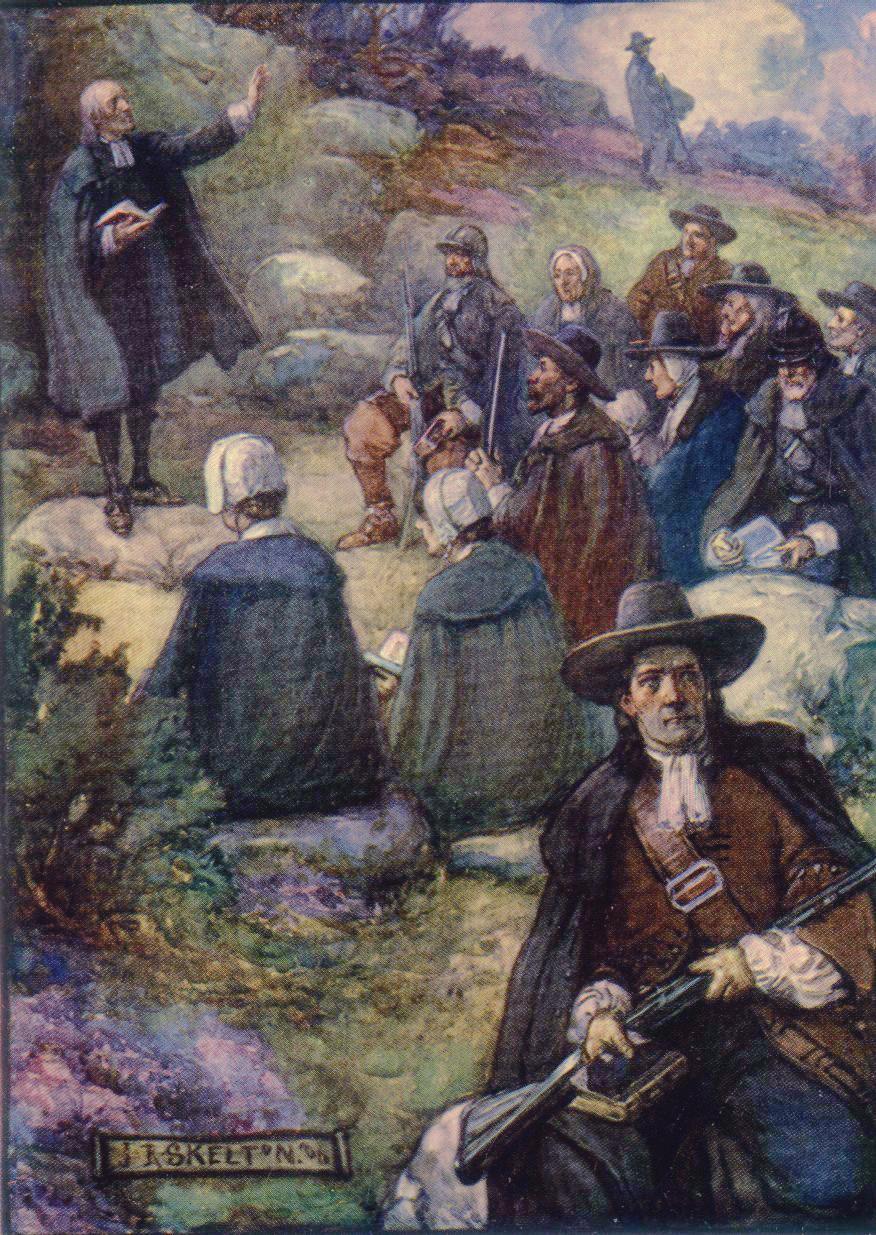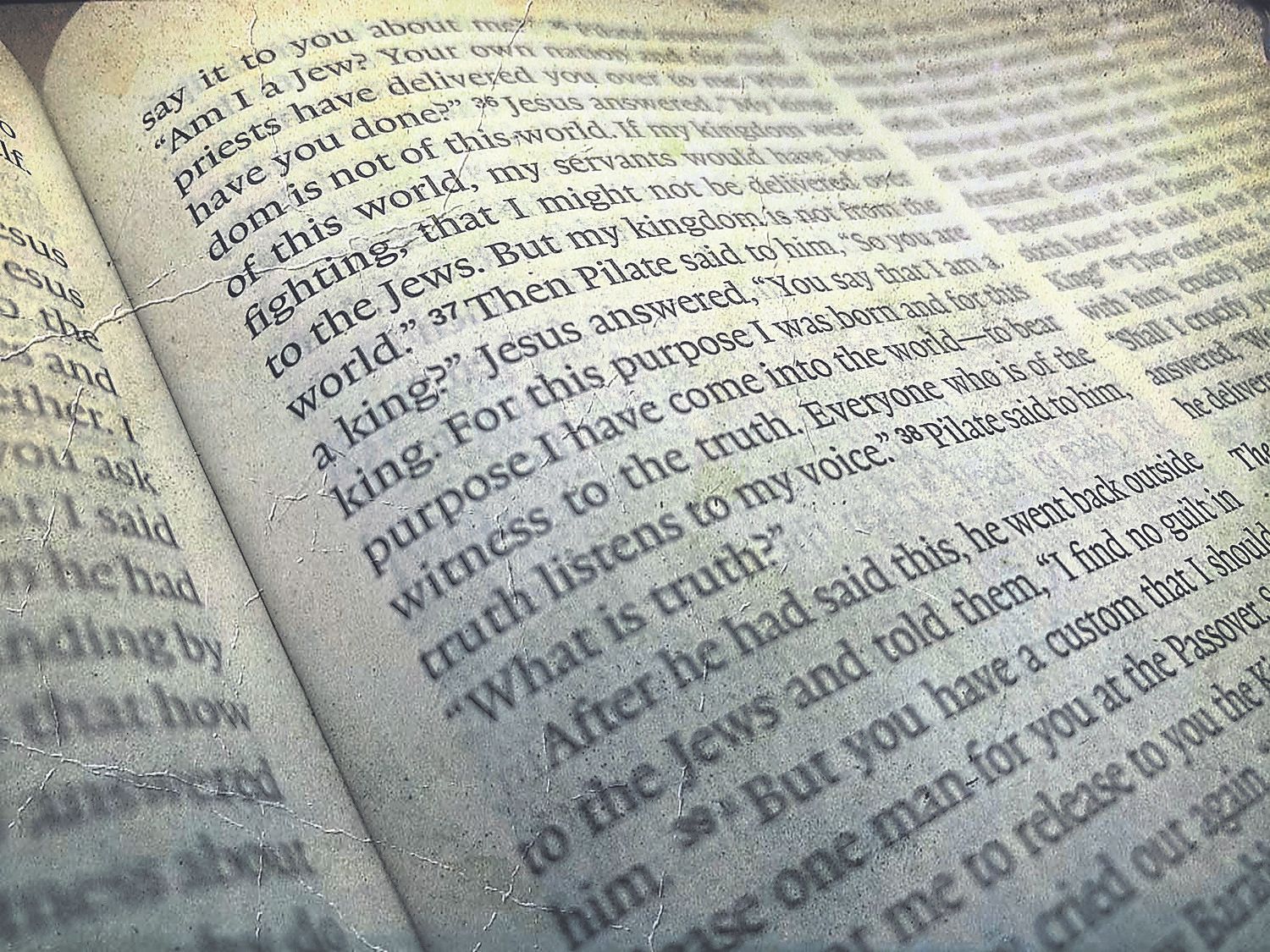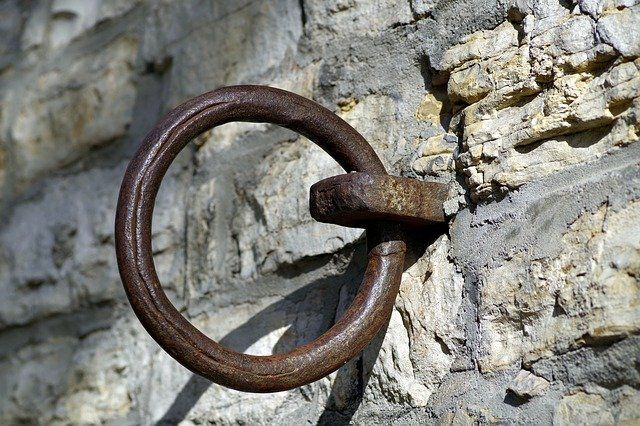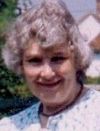
Marion Fairlie, from Lanark in Scotland, was an attractive girl. As she grew to womanhood she was surrounded by many would-be suitors. But only one thing mattered to her – she must marry a man who shared her faith.
These were troubled days for the Scottish church. With the Restoration of Charles II to the throne of England in 1660, soon after Marion’s twentieth birthday, persecution had broken out against any not prepared to submit to the new regulations being imposed on all the churches.
Marriage
24 August 1662 had been a grievous day for the English churches. Known as Black Bartholomew’s Day, it had seen more than two thousand pastors and teachers cast out of their livings in England because of their refusal to conform to the Act of Uniformity.
Two months later the Act of Glasgow effectively led to more than four hundred preachers north of the border also being ejected from their livings. Among their number was William Veitch.
Marion’s friends warned her that to marry such a man would be to embrace a life of suffering. But she saw in the youthful preacher one whose faith and courage spoke of deep devotion to the cause of Christ. In November 1664 Marion, now aged twenty-four, married William. They settled at Dunsyre, sixteen miles south of Edinburgh.

Conventicles
In a sharply deteriorating situation, not only were the ministers suffering for their steadfast faith, but also the people. Those who dared to slip secretly from their homes, to hear their ejected preachers conduct services on lonely mountainsides, were subject to cruel reprisals if they were caught.
Inordinate fines, torture, and even death were the order of the day, as the king’s dragoons roamed the countryside searching for those attending such Conventicles, as they were called.
But in November 1666 a situation arose which would have yet more serious implications for William and Marion Veitch. At Dalry in Galloway an old man suspected of attending a Conventicle had been seized by the dragoons, bound, whipped and was just about to be branded with red-hot irons.
Four men, hearing his cries, suddenly intervened on his behalf. Taken by surprise the soldiers found themselves overpowered and the elderly man released. Delighted at their unexpected success, the rescuers proceeded to march off with the captive dragoons. Others flocked from their villages and soon a makeshift army of peasantry had joined the uprising.
Unwisely, William Veitch was persuaded to join them. When at last they reached Edinburgh, cold, hungry and exhausted, the uprising was ignominiously crushed by the superior forces of the king’s crack troops.
On the run
Vengeance on all who had taken part in the rebellion was swift and cruel. When William did not return home, Marion, who now had the care of two infants and was expecting another, had little idea whether he was alive or dead.
At last a message arrived telling her that he was on the run and would be heading for the safety of England. The search for William was relentless. Again and again the troopers hammered on her door, often in the middle of the night.
They would turn out cupboards, pierce through furnishings with razor sharp swords, and leave with a curse as, once again, Veitch could not be found.

Marion was now cast upon her God in a new way. She read in the Psalms: ‘Trust in the Lord and fear not what man can do’, and this was her refuge and consolation through five difficult years.
William was only able to pay brief clandestine visits to his family in Edinburgh where Marion had taken refuge. But at last, in 1671, he sent a message to say that he had secured a living in Northumberland. It would now be safe for her to join him.
Marched away
Even in England the fugitives were not safe. Vigilance was always needed, for at any time the troopers, who had not given up the search, could burst into the house seeking their prey.
When circumstances forced the family to move to Longhorsley, the danger intensified, for the town was predominantly Catholic and a Scottish accent quickly betrayed them. Narrow escapes multiplied and on one occasion William only avoided detection as he hid behind the curtains of a large window.
But 19 January 1679 was a date Marion Veitch could not easily forget. At five o’clock in the morning as the family slept, armed dragoons burst into the house and William was marched away at gunpoint.
The penalty for having been in that uprising in 1666 was likely to be death. This Marion knew well. She now had a family of six young children, one an infant only a few months old.

With no other recourse but to the God who hears the cries of his people, she gave herself to constant prayer on William’s behalf. For twelve days he lay in the local jail, and Marion has recorded her feelings during this time:
‘At length God helped me to give him freely to him, to do with him as he pleased; and if his blood should fill up the cup of the enemy and bring about deliverance to his church, I would betake myself to [God’s] care and providence for me and my children.’
Comfort from Scripture
Comforted by words of Scripture and by a knowledge that all was under God’s control, Marion was kept at peace. At last came a letter informing her that William was to stand trial in Edinburgh.
Leaving her children in the care of a friend, Marion hurried to the prison, but William was so closely guarded that she could not get near him. Many were her tears as she faced the bleak prospect of her husband’s conviction and likely execution.
An inner battle raged and, as Marion quaintly expressed it: ‘Faith brought me always good news, but when unbelief was master of the field it never had a good tale to tell of God’.
A month later the date of the trial was fixed. Marion travelled to Edinburgh to support William as best as she could. Sometimes she was buoyed up with hopes that he might be treated leniently. Then she would hear rumours that the death sentence would be the likely outcome.
But Marion prayed on and searched the Scriptures for consolation and strength. Throughout these days of intense distress, she clung to the God in whom she had long trusted.
Great was Marion’s joy when at last the Privy Council gave its judgement: William Veitch would not be executed but he would be banished from Scotland.
Shadow of suspicion

Such a crisis of faith and prayer gave Marion a reference point and strong support in all her future trials and sorrows. Persecution intensified in Scotland and the years between 1685 and 1688, known as ‘the Killing Times’, saw many innocent preachers and Christian believers ruthlessly tortured, imprisoned or killed.
Despite his return to Northumberland, William was constantly harried by the king’s dragoons. The shadow of suspicion always rested on him. At last the only answer seemed to be for William to emigrate to Holland, together with their two teenage sons. For Marion the parting with all its uncertainties was painful indeed.
Alone once more with five young children, the eldest a twelve-year-old boy, and no regular means of support, Marion was cast on God for her every need. A threatening landlord and anxiety about her elder sons so far away gave her many ‘errands’ to the throne of grace.
Wonder
But when John, her twelve-year-old, was taken seriously ill, her isolation and need was heightened. Instinctively, she knew that the lad was dying, and Marion’s greatest concern was for his spiritual state. God heard her prayers for him.
‘Mother’, called John. When Marion came to the boy’s bedside he said: ‘I have been praying and giving myself to Christ, and he answered me and took pleasure in my soul which has comforted me’.

Then the child added: ‘Is it not a wonder that Christ Jesus should die for sinners?’ Throughout the remaining days of his short life, John prayed often both for himself and for his brothers and sisters.
His last prayer was for his two older brothers, that each might serve God in his life. ‘Though we be far parted now’, he whispered, ‘we shall meet in glory’. Calling his younger brother and sisters, John added a prayer for them and then said goodbye. Shortly before he died, John pointed upwards with one hand, indicating where his hopes lay.
Relief
Relief came at last for Marion and William Veitch and for the whole church of Christ. In 1688 James II, the last Stuart king, was driven from the throne and his daughter Mary, with her husband William of Orange, succeeded.
William Veitch was able to return from exile and to conduct a long and honourable ministry, first in Peebles and then in Dumfries. Nor were they ever parted again, for William and Marion both died within a day of each other in 1722.
Throughout a life of constant trials and hardship, Marion Veitch had proved the faithfulness of the God who never fails his people.










